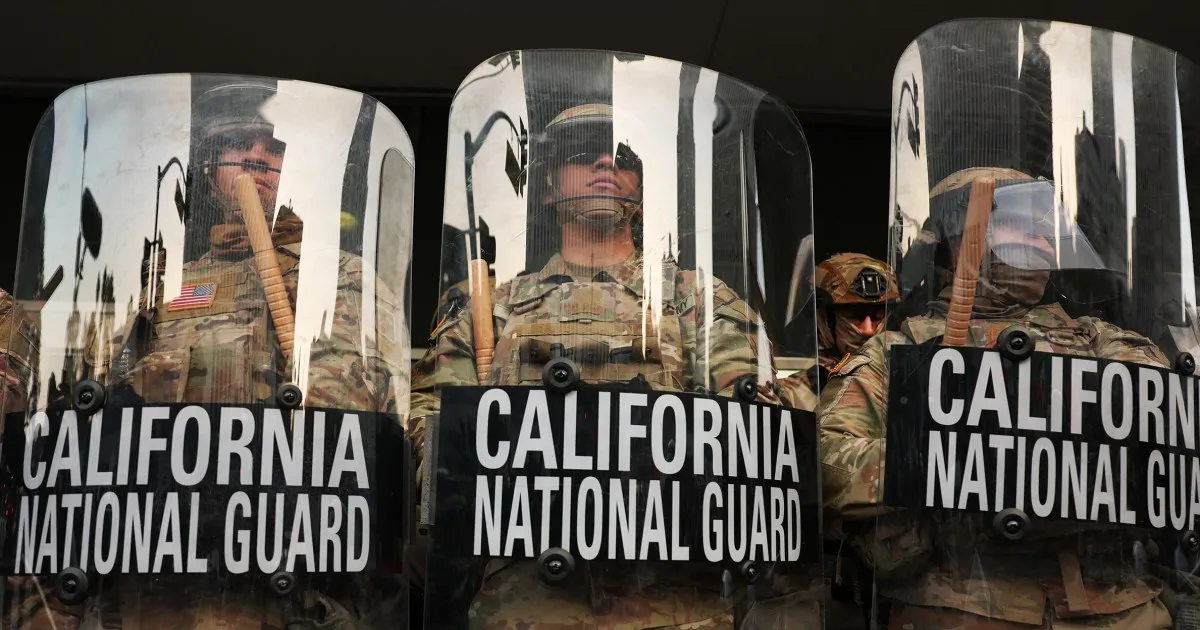
In a significant development, Secretary of Defense Pete Hegseth has ordered the withdrawal of 2,000 National Guard troops who were mobilized last month as a response to widespread protests in Los Angeles. These protests were primarily triggered by recent immigration raids, causing unrest in various parts of the city. This announcement was confirmed by a Pentagon official on Tuesday.
Chief Pentagon spokesman Sean Parnell expressed gratitude towards the troops for their service and noted that their presence has contributed to a decrease in lawlessness in Los Angeles. "Thanks to our troops who stepped up to answer the call, the lawlessness in Los Angeles is subsiding," Parnell stated in an official statement.
The deployment of a total of 4,000 National Guard troops was initiated following a series of immigration enforcement actions that led to protests, some of which turned violent. The situation necessitated the intervention of the National Guard to restore order, which included arrests and the use of less lethal weapons.
However, the decision to deploy these troops faced strong backlash from California Governor Gavin Newsom. He criticized the move as an "assault on Democracy" and drew parallels to authoritarian regimes that target vulnerable populations. In response to this federal action, the state of California filed a lawsuit, asserting that the mobilization was unlawful and infringed upon the governor's authority as the state’s commander-in-chief.
Despite the legal challenge, an appeals panel ruled against California's efforts, affirming that President Donald Trump acted within his statutory authority when he activated the National Guard troops. This deployment marked a historic moment, as it was the first instance since 1965 where a president federalized National Guard troops without seeking the governor’s permission.
As of now, half of the deployed National Guard troops will remain in the Los Angeles area, alongside approximately 700 Marines also deployed by Hegseth. The primary mission of these troops is to provide support in maintaining order; they are authorized to detain individuals who pose a threat to federal personnel or property, but their powers are limited to ensuring safety until local police can make formal arrests. Importantly, military officials are prohibited from conducting arrests themselves, emphasizing the role of local law enforcement in this situation.
This ongoing situation highlights the complex interplay between federal and state authorities, especially concerning military deployment in response to civil unrest. The implications of these actions will continue to unfold in the coming weeks as both legal and public responses evolve.